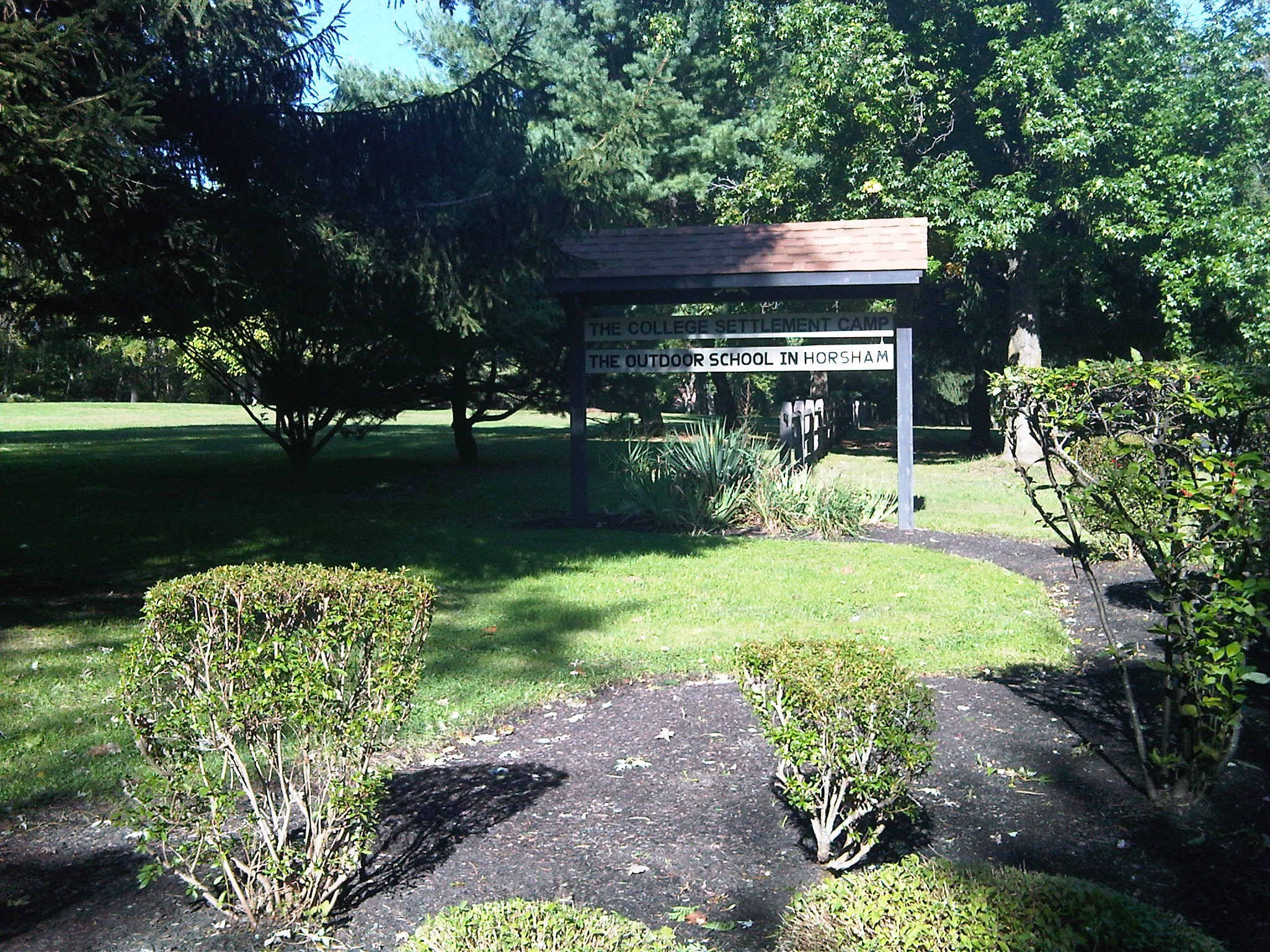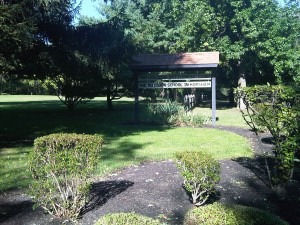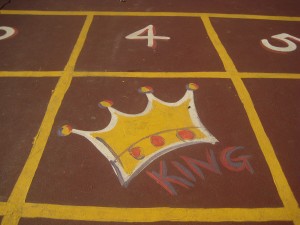I’m bummed not to be able to join friends this weekend as they head to an alumni reunion at my favorite summer camp, College Settlement. As I sit and reminisce, I’ve decided to publish an excerpt from Fifty by Thirty, describing my days at the camp. It is taken from the chapter “This Book Isn’t All About PA, but This Chapter Is.”
“What did College Settlement have? Two full weeks of playing Nine Square on the blacktop, jumping Double Dutch, and hand clapping to Miss Mary Mack and Down Down Baby; not to mention, the best campfire songs and skits of any camp I knew. Sure, when campers got older, we went spelunking and overnight camping in the Poconos, but I spent my summers up until then perfectly content playing Capture the Flag and hunting crayfish. I spent more summers at College Settlement than any of those other camps because to me, College Settlement = Summer.
When you turned down the long driveway we all stretched across holding Hands Across Camp in 1986, you entered a different world. That driveway led to a field house, blacktop, dining hall, bunks, and pure joy. One year, my bunk got into a heap of trouble. After reaming us out, our head honcho took me aside for an extra lecture. I should be setting an example, he said. An example? I had no idea what he meant, and was a little miffed: Why was I any different? Why did I have any more responsibility than anyone else? I did not understand. I did not interpret his words until a few summers later, during my first summer working as a staff assistant at the camp, when someone asked me if I wanted to go along to pick up the kids that were bussed in from the city. Of course I did! We headed into North Philly, where a group of kids were waiting. That is when I started to understand.
At camp, we were all the same. We were all kids in damp and dirty shorts, t-shirts and shoes, running around getting dirtier from head to toe as the day wore into night. But as I watched the kids line up on the blacktop that morning, I saw that we were not all the same. True, I was born in the city, but we moved out when I was four, and then continued moving farther out; if pressed, I would have to admit I came from the suburbs. I was carrying an Esprit bag and wearing Ralph Lauren. These kids were not. My parents had been paying for me to go to camp as if it were any of the other summer camps I attended, and I had always seen College Settlement as any of those other camps even though they did not offer activities like sailing and horseback riding. As an employee, I learned that College Settlement, with the help of the United Way and private donations, was providing economically disadvantaged inner-city kids the opportunity to get off the streets and spend two weeks in this wooded haven.
I had spent the rest of my camper session trying to live up to the leadership role that the camp director had placed upon me, but I had not understood why. Now, as I surveyed the kids boarding the bus, it sank in. Most of them only saw geese comfortably waddling around grassy fields during their time at camp, whereas my father complained about goose shit in our half-acre yard all summer. I had thought we were all the same because there were no differences at camp. It was a place of acceptance, encouragement, forgiveness. When you made a mistake, you were expected to take responsibility, accept the consequences, and then move forward, forgiven. Camp was a safe place for everyone to be themselves and enjoy their summer. If there was another 11-year-old who thought I was different from them, they didn’t certainly didn’t act that way. If they had, it would not have taken me years to realize those differences. At camp, I internalized the knowledge that children taken out of their socioeconomic situations are children, all the same. I also learned how to kick some serious ass from the king square.”
To learn more about College Settlement and find out how you can donate, click here.
Read the full book!
For permission to reproduce this excerpt of 50×30, please contact me.
Error: Contact form not found.


